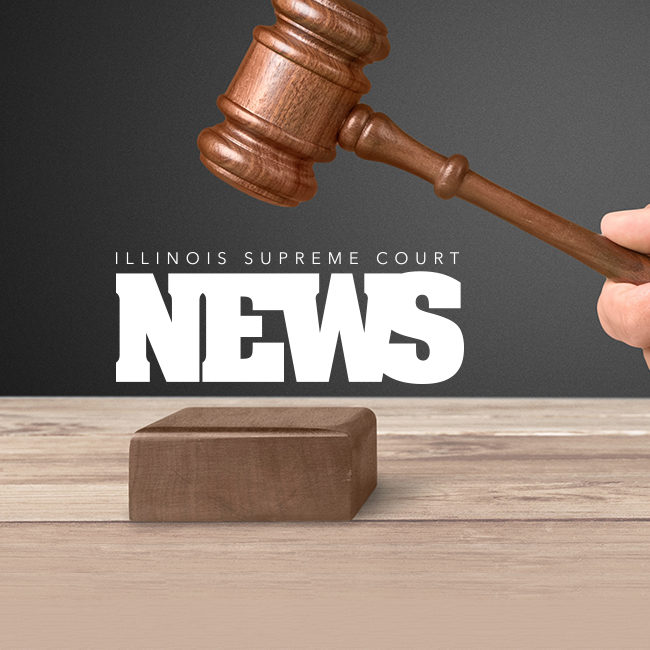Illinois Supreme Court, MCLE Board Unveil Online Portal to Simplify CLE Recordkeeping for Attorneys

Illinois attorneys now have a convenient online portal that simplifies and centralizes recordkeeping for continuing legal education (“CLE”) credits. Using the online system unveiled by the Illinois Supreme Court and the Court’s Minimum Continuing Legal Education (“MCLE”) Board today, attorneys can easily view their credits earned from accredited courses and qualifying bar association meetings, as well as other details about those CLE credits. The new portal is available here.
“The Court has been accelerating the adoption of technology to improve the administration of justice, increase efficiency and reduce costs,” Chief Justice Anne M. Burke said. “The MCLE Board’s latest advance continues that progress by improving efficiency and reducing costs for attorneys. We appreciate and commend the Board and its staff for working with the Court to make this vision a reality.”
Attorneys have kept their own compliance records since they first began earning credits in 2006. While some other states utilize a similar system for attorneys’ MCLE compliance, advances in technology combined with the Board’s mission to use that technology to improve convenience and efficiency for attorneys, presented an opportunity for the Board to centralize this recordkeeping.
The Board has been working toward introducing these enhancements for more than a year. In mid-2019, course providers and bar associations began entering attorneys’ attendance records into the Board’s database. Now, attorneys will also have online access to these records.
With these new resources available on the Board’s website, an attorney can view the CLE credits earned from accredited CLE courses and qualifying bar association meetings, as well as the total number of credits and type. For questions about these credits, the attorney can also access the course provider or bar association’s email and telephone number.
As another new feature, attorneys will now enter CLE credits they earn from activities defined as nontraditional credits in the Court’s MCLE Rules. Those activities include attending qualifying law school courses after law school graduation; teaching law courses at a law school, college, or university part-time; and researching and writing a published legal book, article, or other scholarly work.
As an added feature, the attorney can access information maintained by the Attorney Registration and Disciplinary Commission (“ARDC”) about their current license status and contact information on file. If the attorney wishes to change license status or contact information, there is a direct link to the ARDC’s webpages addressing those issues.
“From the beginning, the Board has dedicated itself to providing attorneys with up-to-date information utilizing advanced online resources and dedicated staff. These enhanced resources are an important step in this continuing process,” MCLE Board Chair Michele M. Jochner said.
“We are pleased to now offer this convenient and comprehensive ‘one-stop’ online MCLE report and are looking forward to providing Illinois attorneys with additional online opportunities to streamline the reporting process in the future.”
The Court created the MCLE program on September 29, 2005 and appointed the board members in November 2005. The Board first met in December 2005 and hired its Director in March 2006. Along with Ms. Jochner, the Board’s officers are Vice-Chair Patrick B. Mathis, Belleville; Treasurer Mike Cetina, Wheaton; and Secretary Cook County Circuit Judge Jean M. Cocozza, Chicago.
In addition to being a resource for about 95,000 active and inactive status attorneys, the Board manages relationships with almost 2,000 course providers and bar associations that offer more than 50,000 accredited CLE courses and meetings to Illinois attorneys annually.

